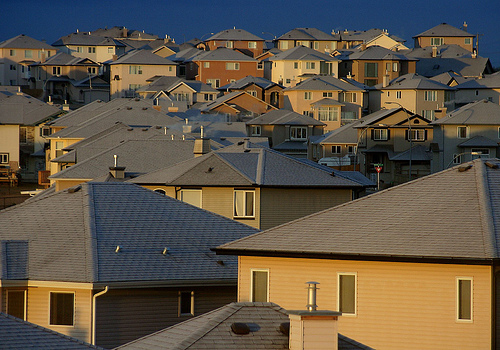The U.S. is suffering crushing unemployment, yet workers can't move to where the jobs are because they are trapped in underwater mortgages, explains a new report from Brookings. This, it turns out, is the ultimate fate of the "ownership society" that our government has been pushing for so long through Fannie, Freddy, and tax policy: People can't migrate to where they're needed most, even if their livelihood depends on it.
The new statistics indicate that just 11.6 percent of U.S. residents moved between 2010 and 2011, down from 12.5 percent the previous year, and the lowest rate since 1948. To put this in proper perspective: the 35.1 million people who changed residence last year is the lowest number since 1960, when the nation’s population was about 40 percent smaller.
The data show that not only are people less likely to move from one state to another, they're also failing to move even within the same county — say, to upgrade to a slightly better job across town, or shorten their commute.
To be fair, there's a feedback loop here: High home ownership levels dampen mobility, but so does the lack of jobs. The point is, when you're in the middle of an economic crisis and a sea change in the nature of work, anything that impedes worker mobility is a bad thing. For generations, we have incentivized people to own their homes. Perhaps a wholesale reversal of those policies is in order, so that they're more in line with patterns of flexible housing seen throughout Europe and Asia.
As a German boss of mine once put it, "In Germany, when you finally buy a house — that's the house you're going to die in."



